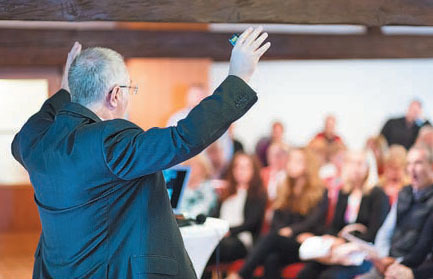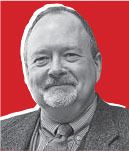How can pastors avoid saying too little – and too much?
Have you heard about the pastor who told his congregation depression was evil and anyone using antidepressant medications should throw them away? All we need, he preached, is the Holy Spirit.
Christians in the medical profession get understandably upset at such preaching and are quick to argue God can use antidepressants to aid in healing.
Yet as the story spread, at least one pastor wondered aloud, "If pastors are not to speak out in these areas, what areas should they speak out in? If you define the gospel as God transforming our whole lives and the world, then we must speak into those areas."
Does your pastor speak out about anything other than personal piety – beyond perhaps occasionally calling us to care for fellow Christians and to love our neighbours?
I’ve heard more than one urban pastor burble excitedly of the church’s location on prime real estate and the calling to "be the church in the city!" – only to preach, week after week, about "Jesus + me."
Where is the sweet spot for preaching? How can pastors avoid saying too little – and too much?
The key is to see the pastor’s calling in the context of the whole Church’s calling. What is it the pastor is to do compared to what all of us are to do?
The epitome of pastoral work is Ephesians 4:12 – "To equip the saints for the work of ministry, for building up the body of Christ." Pastors need to be expert in what we used to call "the cure of souls," the care and feeding of the Body of Christ.
 PHOTOS: SHUTTERSTOCK.COM
PHOTOS: SHUTTERSTOCK.COM

But look carefully at the reason and you’ll see coaching to equip, educate and train Christians is "for the work of ministry" in their homes, neighbourhoods, workplaces and beyond.
The late Mennonite theologian John Howard Yoder wrote of "middle axioms." These are principles drawn from Scripture that go beyond the great truths of the gospel story, crucial as those are, to guide Christian life in home, church and world.
What then does the Bible say about poverty, justice, politics and the common good? What does it say about strangers, cities, states and other groups of people? What does the Bible say about property, charity, law and mercy? What does it say about leisure, entertainment, purity and art? What does the Bible say about friendship, romance and family life?
In fairness many churches already talk about friendship, romance and family life. Good. How about the rest?
The sweet spot is setting out these biblical principles while stopping short of formulating detailed advice and policy proposals. How these principles should apply in any particular sphere is the responsibility, not of clergy, but of laypeople who work expertly in that sphere.
Clergy have no special training in law, medicine, mental health or economics. Their special training is in the Word of God that connects all human life with the great story of creation, fall, salvation and the age to come. And it is that immediate connecting – from getting acquainted with Jesus to seeing more and more of God’s calling on all human life – that is the special business of pastors and other theological teachers.
Sermon series and adult education classes, then, should set out the conceptual groundwork for theme-focused conferences, informative youth seminars, thoughtful family weekends and educational camp sessions.
Pastors equip Christian laypeople to reflect on what we do, and how the Christian view of things should motivate and alter what we do – and then Christian laypeople teach the rest of us how they’ve applied that in an area of expertise.
We don’t need pastors spouting from the pulpit their personal opinions on matters about which they know no more than anyone else. We badly need pastors to break out of the narrow, easy focus on "Jesus + me" piety to help us think about everything else the Bible addresses – which is, indeed, everything else.
And then the rest of us need to step up to do our own work of thinking hard and teaching well about applying these principles in the particular zones of our particular lives. Only if each of us plays our part in the Body of Christ can we all do what we are called to do.
Not too little. And not too much.
 JOHN G. STACKHOUSE JR.
JOHN G. STACKHOUSE JR.
John Stackhouse teaches at Crandall University in Moncton. He deals with these issues in detail in his latest book Why You’re Here: Ethics for the Real World (Oxford, 2017). Find more of these columns at www.FaithToday.ca/ChristAndCulture.